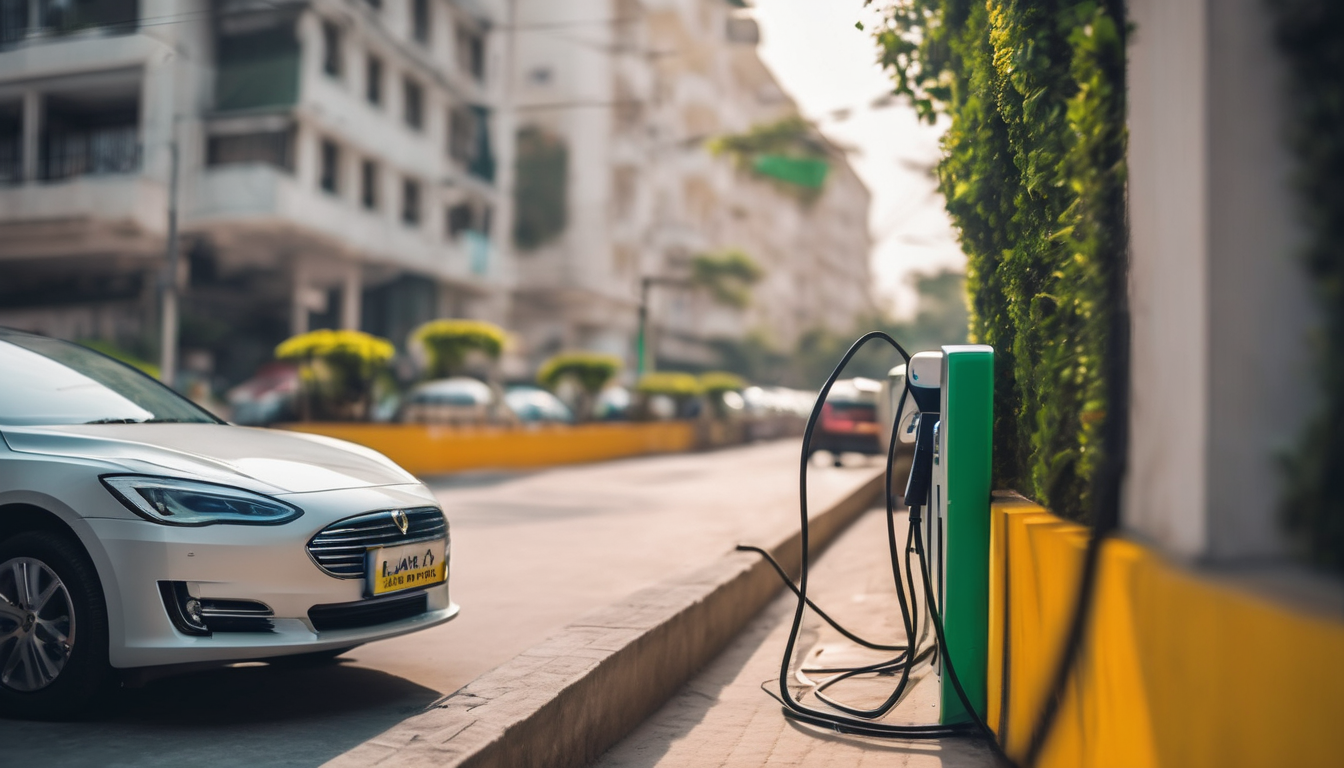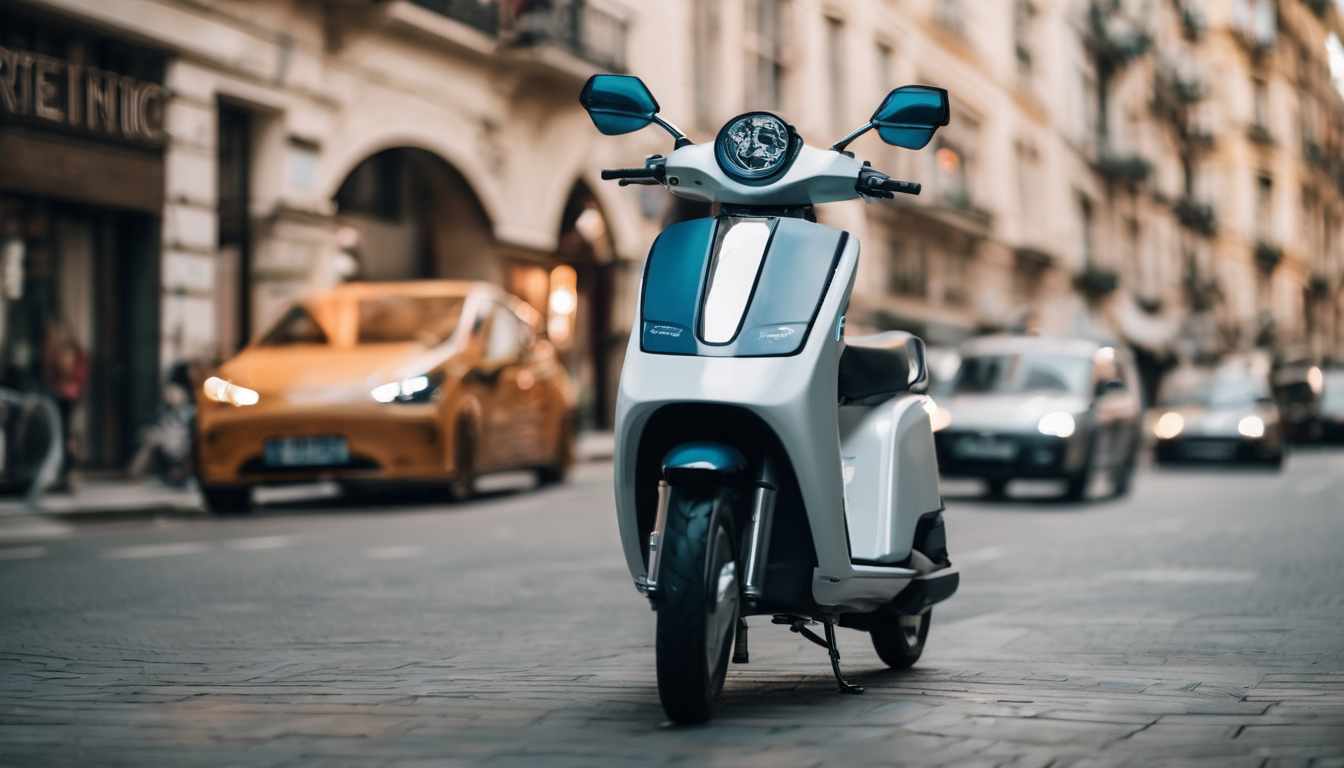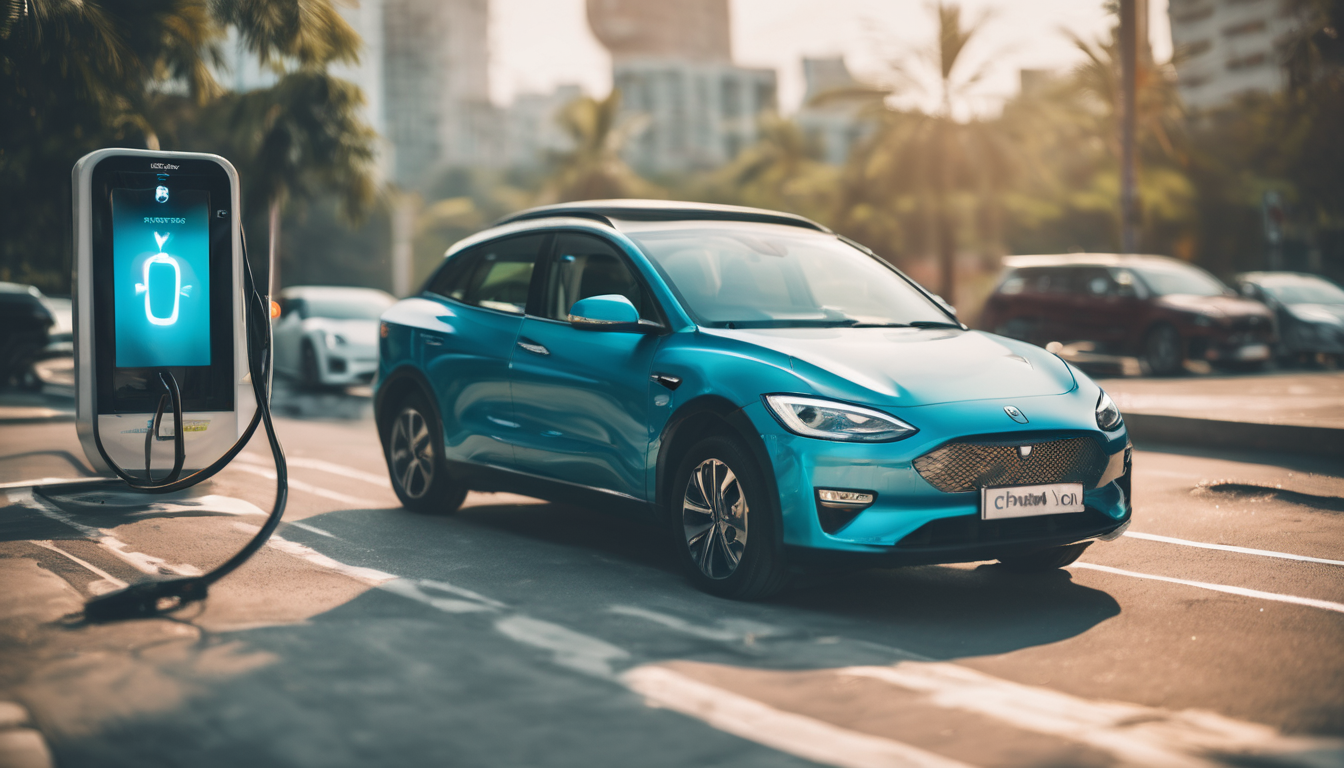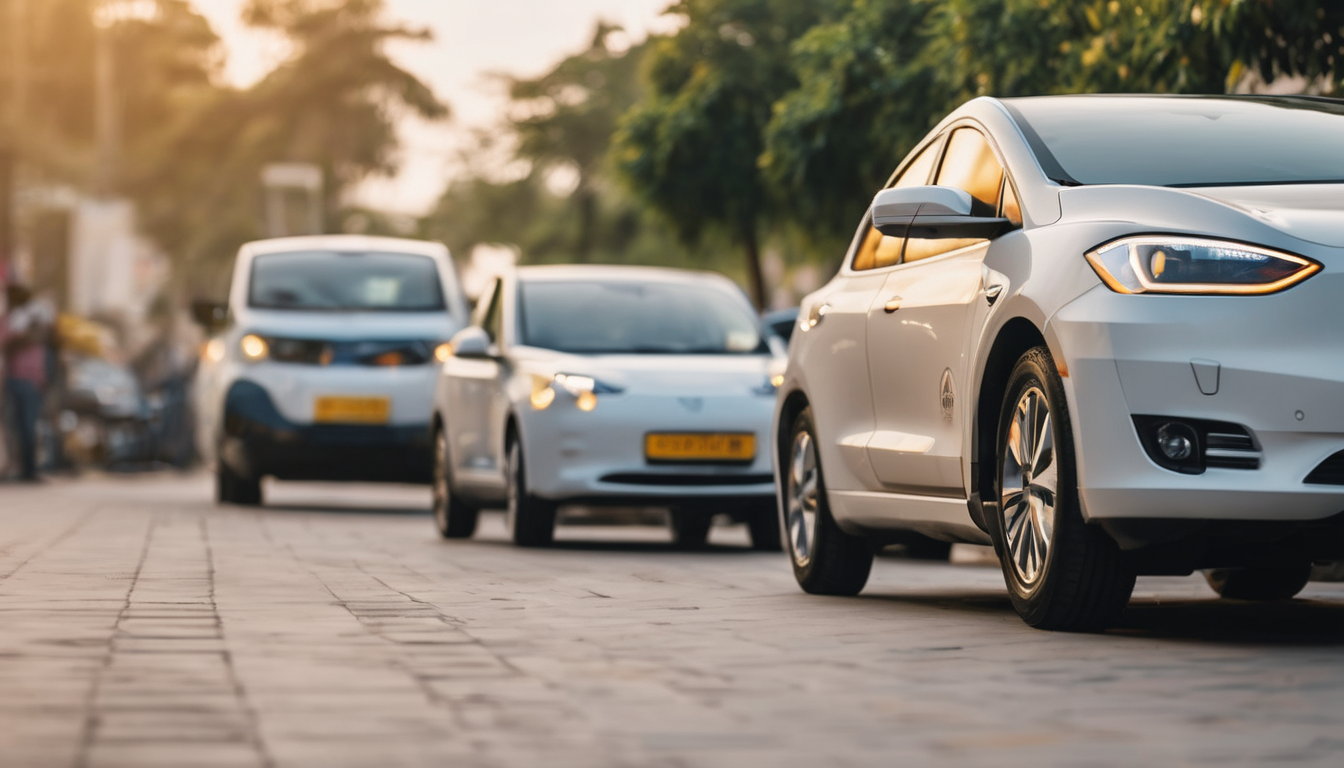Introduction
As the world grapples with climate change, India is stepping up with ambitious plans to reduce its carbon footprint. One of the most significant shifts in this regard is the increasing adoption of electric vehicles (EVs). With a growing concern for environmental sustainability, the Indian government and private sectors are collaborating to make electric mobility a reality. This article delves into how the transition to EV manufacturing is not only reshaping the automotive landscape but also contributing significantly to reducing carbon emissions in the transportation sector of India.
The Need for Sustainable Transportation in India
India’s transportation sector is one of the largest contributors to greenhouse gas emissions. The rapid urbanization, coupled with a rising middle class, has led to an increase in vehicle ownership. However, conventional gasoline and diesel vehicles are major pollutants.
- Growing Population: With a population exceeding 1.4 billion, the demand for transportation services is skyrocketing.
- Urbanization: Nearly 34% of the population lives in urban areas, leading to increased traffic congestion and pollution.
- Health Hazards: Air quality in major cities often falls below safe levels, contributing to respiratory diseases.
These challenges present an urgent need for a sustainable solution, which is where electric vehicles come into play.
Government Initiatives Promoting Electric Vehicles
The Indian government has rolled out various policies and incentives to promote the adoption of EVs. Some of the key initiatives include:
FAME India Scheme
The Faster Adoption and Manufacturing of Hybrid and Electric Vehicles (FAME) scheme aims to incentivize electric and hybrid vehicle production and sales. This initiative provides subsidies for EV purchases and infrastructure development.
State-Level Policies
Several states have introduced their own EV policies, focusing on subsidies, tax exemptions, and encouraging local manufacturing. For example, Delhi’s EV policy emphasizes increasing the number of electric vehicles on the road while enhancing charging infrastructure. For more details, visit the Delhi EV Policy.
Tax Incentives
The reduction of Goods and Services Tax (GST) on EVs to 5% has made these vehicles more affordable, encouraging consumers to make the switch. Additionally, the GST rationalization on renewable energy devices supports the overall clean energy transition.
Impact of Electric Vehicles on Carbon Emissions
The shift to electric vehicles has a direct impact on reducing greenhouse gas emissions.
- Lower Emissions: EVs produce zero tailpipe emissions, which significantly reduces air pollution in urban areas.
- Renewable Energy Integration: As India increases its renewable energy capacity, EVs can be charged using clean energy sources, further reducing their carbon footprint.
- Reduction in Fossil Fuel Dependence: EVs lessen the reliance on fossil fuels, contributing to energy security and sustainability.
Studies indicate that transitioning to electric mobility could reduce transportation emissions significantly. According to a report by the IEA, EVs could help India avoid up to 1 billion tons of CO2 emissions by 2030 if the shift is implemented effectively.
Challenges in the EV Ecosystem
While the promise of electric vehicles is bright, several challenges remain:
Charging Infrastructure
A robust charging network is critical for the widespread adoption of EVs. Although India has made strides in expanding its charging infrastructure, gaps still exist. The charging network has quadrupled in the last 15 months, but more needs to be done to meet future demand.
Battery Technology and Recycling
The production of EV batteries poses environmental concerns, particularly regarding lithium mining and disposal. Research and investment in sustainable battery technology are crucial to mitigate these impacts.
Consumer Awareness
Many consumers still have misconceptions about EVs, including concerns about range anxiety and charging times. Increasing awareness through educational campaigns can help alleviate these concerns.
Innovative Solutions in the EV Market
India is witnessing a surge in innovative solutions within the EV market.
Affordable Electric Vehicles
The introduction of affordable models like the Yakuza Mini Electric Car is making EVs accessible to a broader audience. Additionally, budget-friendly options such as the Avon E-Lite Electric Scooter cater to the needs of urban commuters.
Smart Charging Solutions
Developments in smart charging technologies and mobile applications are simplifying the charging process, making it more user-friendly. These innovations help users locate charging stations and monitor battery health.
EV Accessories
As the demand for EVs grows, so does the market for complementary accessories. The top accessories for Indian EV owners are essential for enhancing the overall ownership experience.
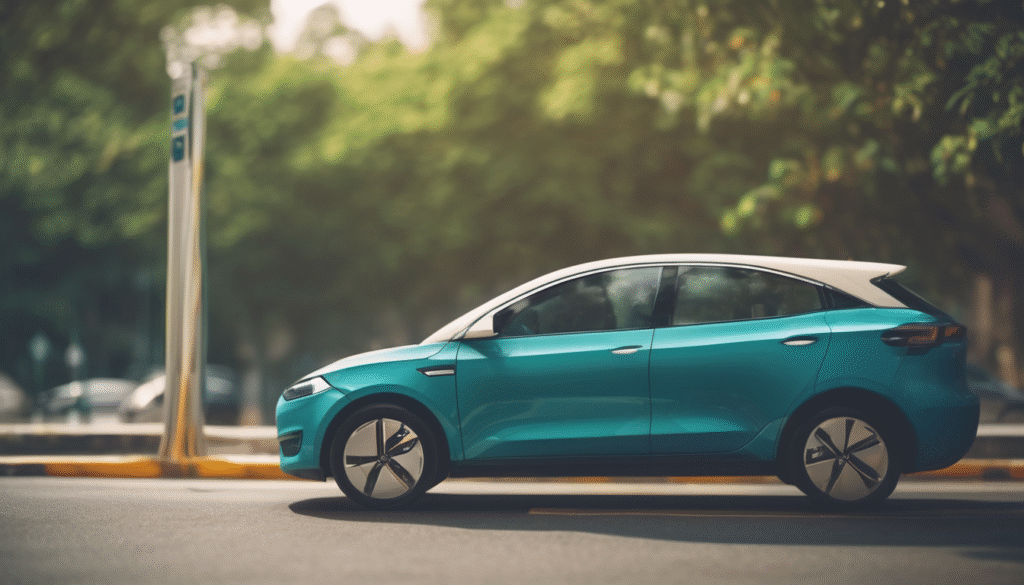
Conclusion
The drive towards electric vehicles is not just an automotive revolution; it represents a significant step towards a sustainable future for India. With supportive government policies, innovative solutions, and a commitment to reducing carbon emissions, the country is on the right path to transforming its transportation sector. While there are challenges to overcome, the collective effort of the government, businesses, and consumers can lead to a greener India.
As we embrace this shift, it is crucial for individuals to consider making the switch to electric vehicles. Together, we can drive change and contribute to a sustainable future.
FAQ
1. What are the main benefits of electric vehicles?
Electric vehicles offer several benefits, including lower emissions, reduced fuel costs, and decreased dependency on fossil fuels.
2. How is the Indian government supporting EV adoption?
The Indian government has implemented various policies such as the FAME scheme, tax incentives, and state-level initiatives to promote electric vehicles.
3. What challenges does India face in expanding EV infrastructure?
Key challenges include inadequate charging infrastructure, battery technology concerns, and consumer awareness about electric vehicles.
4. Are electric vehicles more expensive than traditional vehicles?
While the initial cost of electric vehicles can be higher, lower operating and maintenance costs can make them more economical in the long run.
5. How can I charge my electric vehicle at home?
You can install a home charging station or use a standard electrical outlet to charge your EV, depending on your vehicle’s compatibility.



